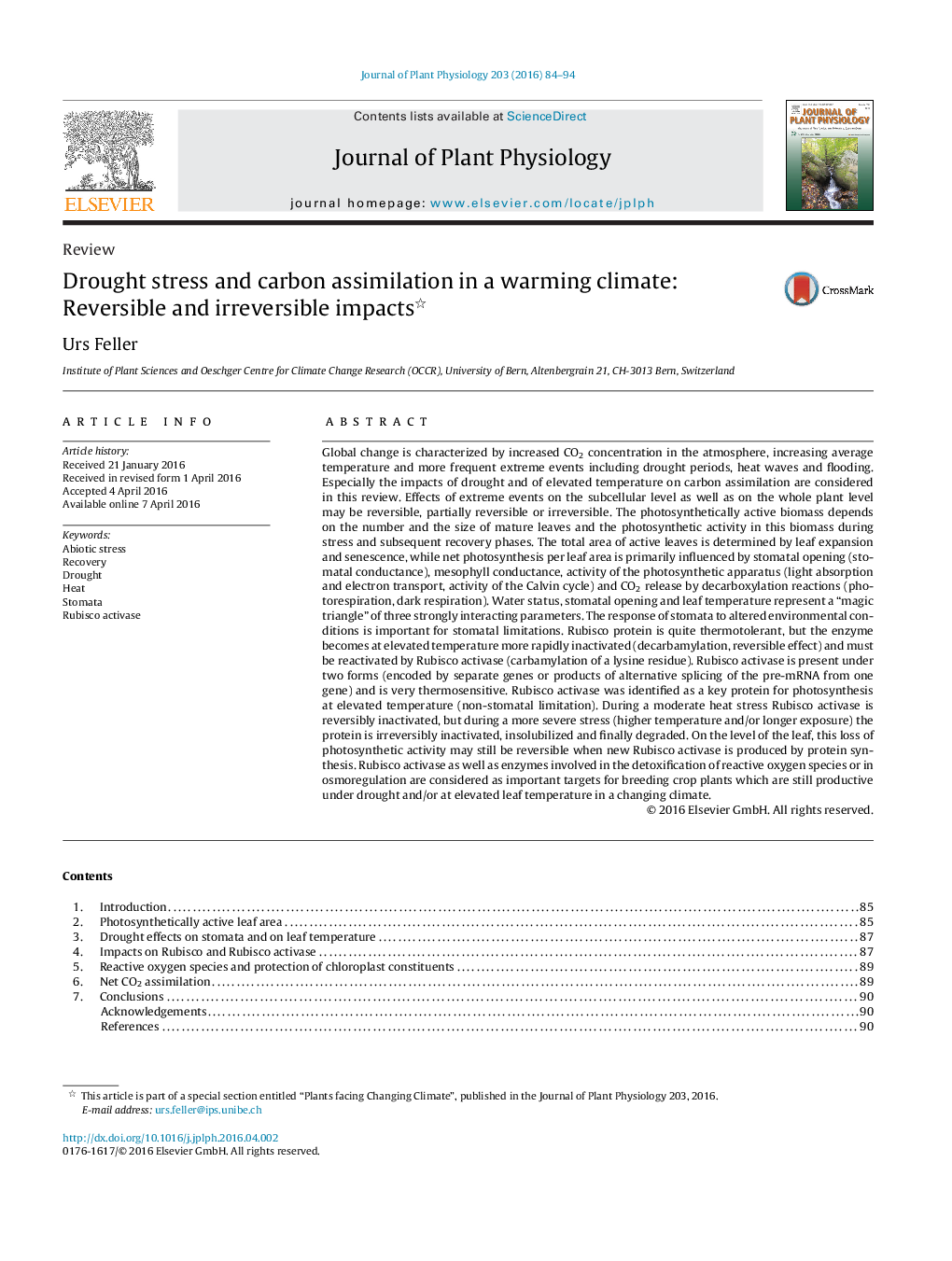| کد مقاله | کد نشریه | سال انتشار | مقاله انگلیسی | نسخه تمام متن |
|---|---|---|---|---|
| 5518180 | 1543875 | 2016 | 11 صفحه PDF | دانلود رایگان |
Global change is characterized by increased CO2 concentration in the atmosphere, increasing average temperature and more frequent extreme events including drought periods, heat waves and flooding. Especially the impacts of drought and of elevated temperature on carbon assimilation are considered in this review. Effects of extreme events on the subcellular level as well as on the whole plant level may be reversible, partially reversible or irreversible. The photosynthetically active biomass depends on the number and the size of mature leaves and the photosynthetic activity in this biomass during stress and subsequent recovery phases. The total area of active leaves is determined by leaf expansion and senescence, while net photosynthesis per leaf area is primarily influenced by stomatal opening (stomatal conductance), mesophyll conductance, activity of the photosynthetic apparatus (light absorption and electron transport, activity of the Calvin cycle) and CO2 release by decarboxylation reactions (photorespiration, dark respiration). Water status, stomatal opening and leaf temperature represent a “magic triangle” of three strongly interacting parameters. The response of stomata to altered environmental conditions is important for stomatal limitations. Rubisco protein is quite thermotolerant, but the enzyme becomes at elevated temperature more rapidly inactivated (decarbamylation, reversible effect) and must be reactivated by Rubisco activase (carbamylation of a lysine residue). Rubisco activase is present under two forms (encoded by separate genes or products of alternative splicing of the pre-mRNA from one gene) and is very thermosensitive. Rubisco activase was identified as a key protein for photosynthesis at elevated temperature (non-stomatal limitation). During a moderate heat stress Rubisco activase is reversibly inactivated, but during a more severe stress (higher temperature and/or longer exposure) the protein is irreversibly inactivated, insolubilized and finally degraded. On the level of the leaf, this loss of photosynthetic activity may still be reversible when new Rubisco activase is produced by protein synthesis. Rubisco activase as well as enzymes involved in the detoxification of reactive oxygen species or in osmoregulation are considered as important targets for breeding crop plants which are still productive under drought and/or at elevated leaf temperature in a changing climate.
Journal: Journal of Plant Physiology - Volume 203, 20 September 2016, Pages 84-94
